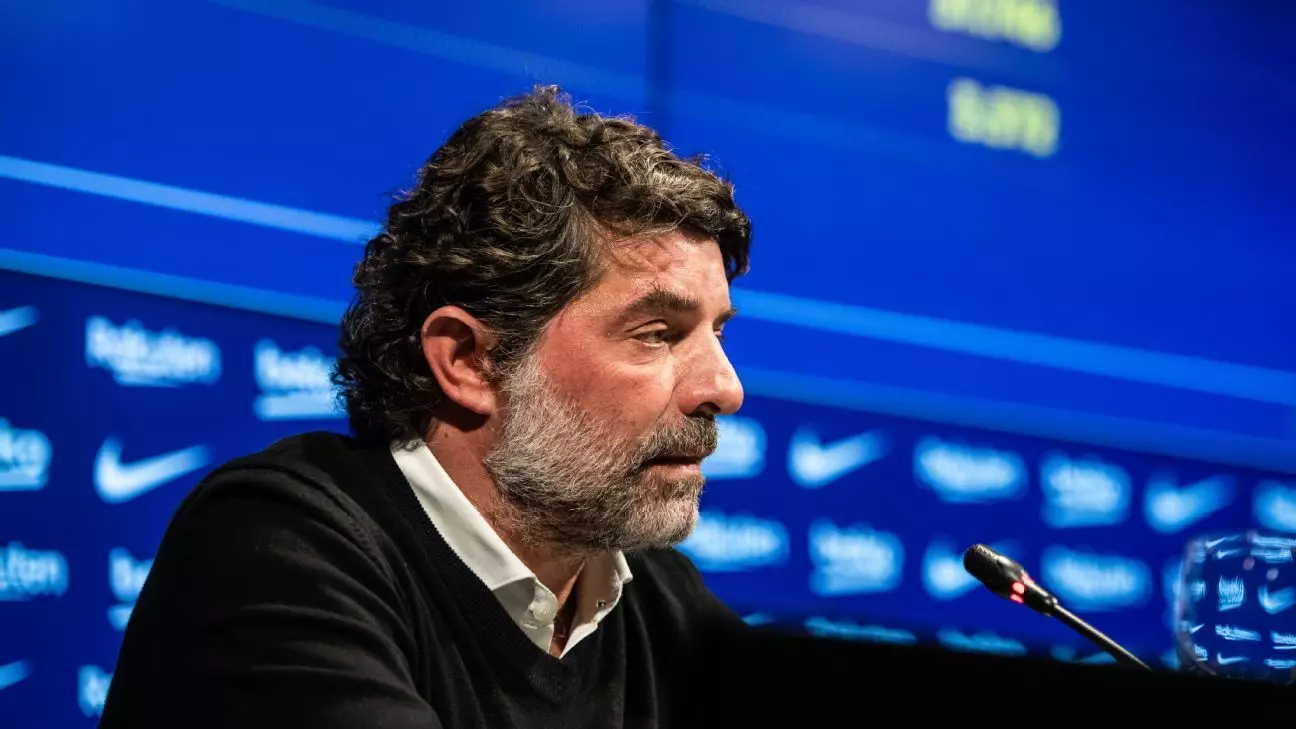In a surprising turn of events, FC Barcelona has witnessed the resignation of its vice president, Juli Guiu. Sources confirmed to ESPN that this departure stemmed primarily from disagreements surrounding the club’s latest sponsorship deal with Nike, a significant partner in Barcelona’s commercial strategy. Official statements from the club categorized Guiu’s resignation as a “personal decision,” sending ripples through both the management and fan base alike.
The newly ratified agreement with Nike is reportedly worth over €100 million ($103 million) annually, marking it as one of the most lucrative sponsorship deals in the world of football. While the financial uplift this deal promises is beneficial to the struggling club, Guiu’s unease with specific terms indicates deeper tensions within the management ranks. His objections to the commission fees paid to Darren Dein, the agent acting as an intermediary between Barcelona and Nike, reflect a larger issue of transparency and governance in club dealings. Such disagreements can ultimately jeopardize the harmonious operation of the board and pose challenges in the execution of strategy.
Guiu’s tenure at Barcelona was marked by notable achievements, particularly in expanding the club’s sponsor portfolio. He played an instrumental role in bringing high-profile partners on board, notably Spotify, which now serves as the main sponsor and has acquired naming rights for the ever-iconic Camp Nou. His focus on marketing and sponsorship strategies has been paramount for a club facing considerable financial hurdles. Consequently, his departure raises questions about the future of such initiatives and the club’s capacity to sustain its commercial momentum.
This incident unfolds against a backdrop of ongoing complications for FC Barcelona, particularly in navigating financial regulations. The recent decision by Spain’s sports ministry, allowing temporary player registrations, adds another layer of complexity to the club’s precarious situation. This decision contradicts LaLiga and the RFEF’s prior rulings, which suggested Barcelona had failed to meet financial fair play (FFP) obligations. The backlash from other clubs, including Atlético Madrid and Las Palmas, underscores the contentious atmosphere prevailing in Spanish football, where Barcelona’s internal discord further complicates their position.
As Barcelona moves forward without Guiu, the focus will now shift to how the board will address the void left behind. The upcoming leadership decisions will be crucial in realigning the club’s vision, especially as it continues to seek new partnerships and navigate complicated financial waters. The club must also prioritize internal cohesion to prevent further resignations, which can destabilize operations at a time when unity is imperative. Building trust within the management and ensuring robust dialogue around financial decisions will be critical to regaining a footing in both performance and sponsorship landscapes.
Guiu’s resignation not only reflects personal discontent but also sheds light on broader issues within FC Barcelona, emphasizing the ongoing struggles the club faces as it endeavours to regain its historic stature both on and off the pitch.

